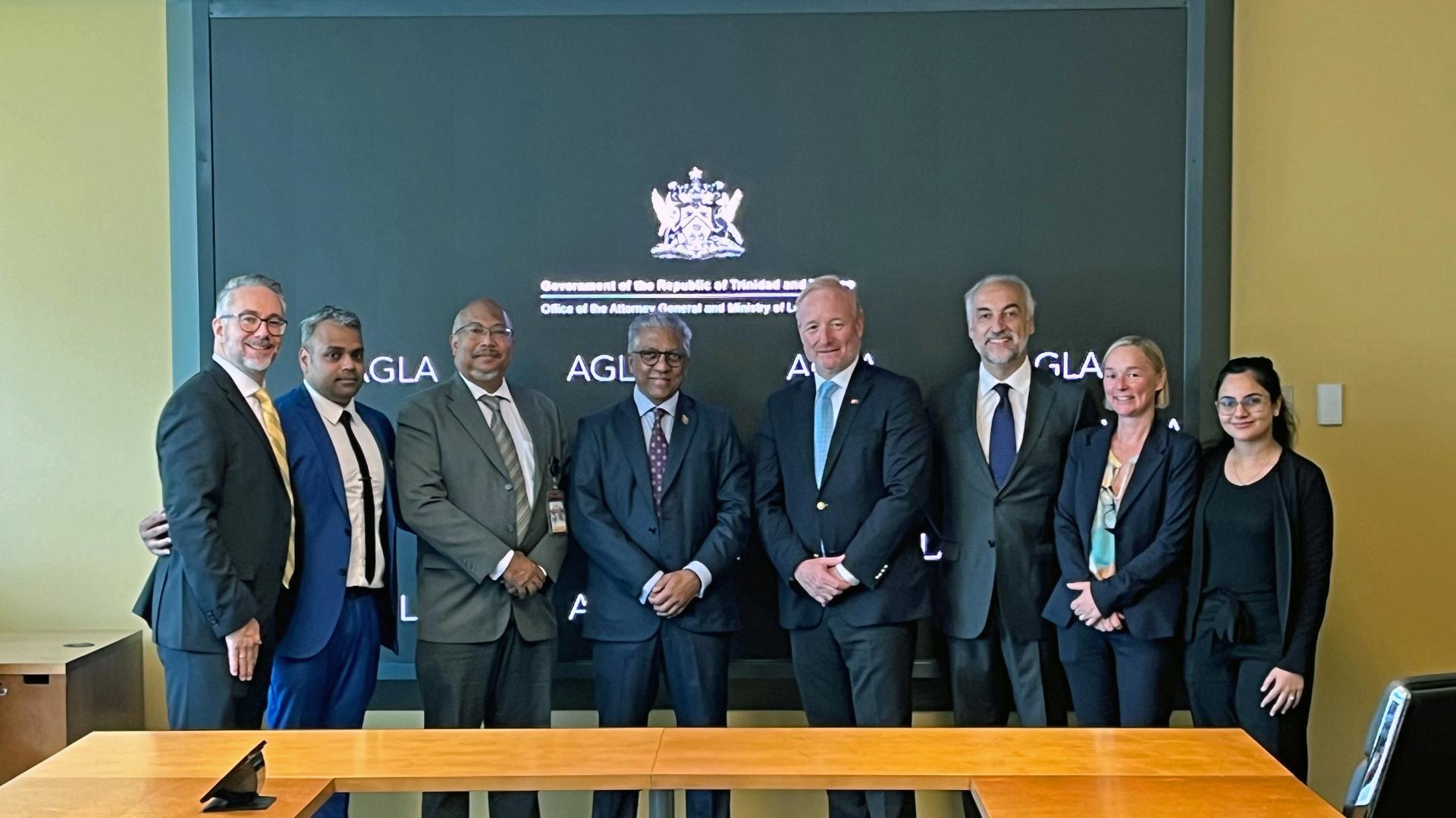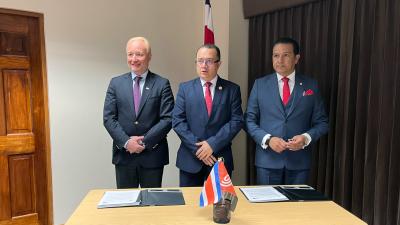EPO mission to Central America and the Caribbean

Meeting in Trinidad: Nelson Das Neves (EPO), Kavish Seetahal (Deputy Controller), Richard Aching (Manager, Technical Examination), Senator the Honourable Reginal T.A. Armour, SC (Attorney General and Minister of Legal Affairs), António Campinos (EPO President), Maximiliano Santa Cruz (EPO consultant), Madeleine Schieck (EPO), Lyrinda Persaud, Legal Officer.
During a mission to Central America and the Caribbean, a delegation led by EPO President António Campinos met with the Minister of Justice and Peace of Costa Rica, Mr Gerald Campos, the Vice-Minister of Commerce of Panama, Ms Candice Herrera, and the Attorney General and Minister of Legal Affairs of Trinidad and Tobago, Senator the Honourable Reginal T.A. Armour, S.C. The validation system was at the core of the discussions, with President Campinos underlining its benefits for these countries.
Among the trip's highlights, Senator Armour signed a letter requesting the formal opening of negotiations on a Validation Agreement between Trinidad and Tobago and the European Patent Organisation. In addition, Ms Herrera expressed significant interest on behalf of Panama. In Costa Rica, Minister Campos took stock of the good progress made with the drafting of the validation agreement since his visit to the EPO last October. He reported positively on the feedback received so far following an inter-ministerial consultation on the draft text.
The EPO delegation also met with the Heads of IP Office in the three countries, Mr Agustín Meléndez Garcia, Director General of the Registro Nacional of Costa Rica, Mr Leonardo Uribe, Director General of the Registro de la Propiedad Industrial de Panama and Mr Richard Aching, Manager Technical Examination of the Trinidad and Tobago Intellectual Property Office. These meetings enabled the EPO to provide updates on its new Strategic Plan (SP2028), performance and the activities of the recently launched Observatory on Patents and Technology.
Discussions also took place with representatives of national IP professionals in Panama and in Trinidad and Tobago, to explore potential validation agreements, which aim to generate new business opportunities in these countries.
Through the mission, the EPO strengthened its existing relationships with Central American and Caribbean partners while taking steps to reveal new horizons for the validation system in the region. These efforts lay a robust foundation for continued cooperation, promising mutual benefits for all the offices.
About validation agreements
Validation agreements offer a simple, timely and cost-efficient way to protect an invention in the validation state. The agreements are based on a single European patent application, which eliminates the need to file a corresponding national patent application. Following the introduction of SP2028, the EPO will pursue validation agreements as the preferred and most advanced form of cooperation with countries that are not members of the European Patent Convention (EPC). The system comes with several advantages: national resources that would otherwise be allocated to new search and examination can be invested in tackling backlogs in the national patent system, awareness raising and capacity building. This contributes to the overall sustainability of the patent system and renders the market of the validation state more attractive to investors.

